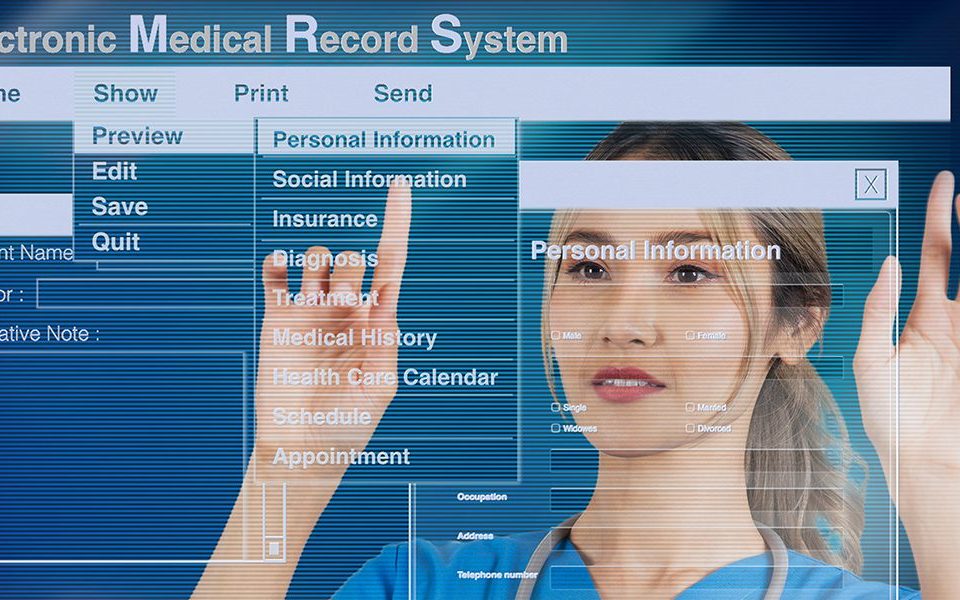- Home
- About Us
- EMR Features
-
-
- EMR Features
-
- Patient Health Features
-
- Clinic Features
-
-
- Specialties
-
- Blog
- Contact Us
Alembico EMR : Now SOC 2 compliant and ISO13485 certified
Why Cloud-Based Healthcare Scheduling Software is Becoming the Industry Standard

Scheduling is one of the most critical aspects of healthcare operations. Efficient appointment management ensures timely patient care, reduces administrative burdens, and improves overall workflow. Traditional scheduling methods, such as paper-based systems or locally installed software, often lead to inefficiencies, including double bookings, missed appointments, and difficulty in accessing schedules remotely. As the industry shifts toward digital transformation, healthcare scheduling software has become a vital tool for improving coordination and optimizing resource management.
Cloud-based solutions have emerged as a preferred choice, offering greater accessibility, automation, and integration with EMR systems in healthcare. This transition is driven by the need for seamless communication, improved patient engagement, and reduced operational inefficiencies. As healthcare providers look for more effective ways to manage their schedules, cloud-based healthcare software is setting a new industry standard.
The Growing Need for Efficient Scheduling in Healthcare
The demand for healthcare scheduling software has increased due to several industry challenges:
- High Patient Volumes: Managing appointments efficiently is essential to prevent long wait times and ensure smooth clinic operations.
- Staff Coordination: Multiple providers within a practice need a centralized system to avoid scheduling conflicts.
- Patient No-Shows: Automated reminders and real-time appointment tracking help reduce missed visits.
- Regulatory Compliance: Maintaining proper documentation and audit trails for appointment scheduling supports compliance with healthcare regulations.
- Integration with Other Systems: A scheduling system that connects with medical billing scheduling software and EMR systems in healthcare improves operational efficiency.
Cloud-based solutions provide a streamlined approach to tackling these challenges, offering flexibility, automation, and enhanced accessibility.
What is Cloud-Based Healthcare Scheduling Software?
A cloud-based healthcare scheduling software solution is a digital platform that allows healthcare providers to manage patient appointments, staff schedules, and resource allocation through an online system. Unlike traditional on-premise solutions, cloud-based platforms store data on secure servers, making it accessible from multiple locations and devices.
Key Features of Cloud-Based Scheduling Software:
- Remote Access: Schedules can be updated and accessed from anywhere with an internet connection.
- Automated Reminders: Reduces patient no-shows by sending appointment confirmations and follow-up notifications.
- Multi-User Support: Allows different healthcare professionals within a facility to coordinate schedules seamlessly.
- Integration with EMR Systems: Enhances workflow by syncing with EMR systems in healthcare, reducing duplicate entries.
- Real-Time Availability Updates: Prevents overbooking and improves patient experience.
These features enable healthcare providers to manage appointments efficiently while ensuring a smooth patient flow.
Key Benefits of Cloud-Based Healthcare Scheduling Software
Cloud-based healthcare scheduling software offers several advantages over traditional scheduling methods:
1. Improved Accessibility and Flexibility
Since cloud-based platforms are accessible from any device with an internet connection, healthcare providers can manage appointments even outside clinic hours. This is particularly beneficial for multi-location practices that require a centralized scheduling system.
Also read: https://alembicoemr.com/how-cloud-based-electronic-medical-record-systems-improve-data-security/
2. Integration with Other Healthcare Systems
Seamless integration with EMR systems in healthcare ensures that patient records, billing details, and appointment histories are linked. This reduces manual data entry and minimizes errors.
3. Reduced Administrative Burden
Automating scheduling tasks eliminates the need for manual tracking, allowing front-desk staff to focus on patient interactions and other essential duties.
4. Enhanced Patient Engagement
With automated appointment confirmations, reminders, and online scheduling options, patients can book or reschedule appointments easily, reducing call volume at medical facilities.
5. Cost-Effectiveness and Scalability
Cloud-based medical billing scheduling software operates on a subscription model, reducing upfront IT costs. It also scales with the practice, allowing new users, locations, or features to be added as needed.
These benefits position cloud-based scheduling as the preferred choice for healthcare providers seeking efficiency and growth.
Addressing Common Concerns with Cloud-Based Scheduling
While healthcare scheduling software offers numerous advantages, some healthcare providers may have concerns about transitioning to a cloud-based system. Addressing these concerns ensures a better understanding of the reliability and security of such solutions.
1. Data Security and Privacy
One of the main concerns with cloud-based solutions is data security. However, leading healthcare software providers implement robust encryption, multi-factor authentication, and compliance with healthcare data protection regulations to ensure patient information remains secure.
2. Internet Dependence
Since cloud-based platforms rely on an internet connection, providers may worry about accessibility during network outages. Many systems offer offline functionality, ensuring critical scheduling features remain operational even when connectivity is limited.
3. Transition and Training
Adopting a new system requires staff training. However, modern healthcare scheduling software is designed with user-friendly interfaces and support resources, ensuring a smooth transition without significant disruptions.
By addressing these concerns, healthcare providers can make an informed decision about implementing cloud-based scheduling solutions.
The Future of Healthcare Scheduling & Cloud Technology
As technology continues to evolve, cloud-based healthcare software is expected to become more sophisticated, offering additional features that enhance scheduling and patient management. Emerging trends include:
- Artificial Intelligence (AI) Integration: AI-powered scheduling will optimize appointment booking based on provider availability and patient history.
- Telehealth Compatibility: Seamless integration with virtual care platforms will enable easy scheduling of telehealth visits.
- Predictive Analytics: Data-driven insights will help healthcare facilities optimize appointment slots, reduce cancellations, and improve resource allocation.
The shift toward cloud-based EMR systems in healthcare will further enhance scheduling efficiency by providing real-time data access and workflow automation. Healthcare providers adopting these advancements will improve operational efficiency while enhancing patient care.
Streamlining Scheduling with Healthcare Software
Cloud-based healthcare scheduling software is becoming the industry standard due to its accessibility, automation, and seamless integration with medical billing scheduling software and EMR systems in healthcare. By adopting a cloud-based solution, healthcare providers can improve appointment management, enhance patient engagement, and reduce administrative burdens.
Alembico EMR offers a secure, efficient healthcare software solution designed to meet the evolving needs of medical practices.
Contact Alembico EMR today to learn how cloud-based scheduling can optimize healthcare operations.
Tags: EMR systems used in healthcare, healthcare scheduling in the software, Healthcare SoftwareRelated posts
June 21, 2024



